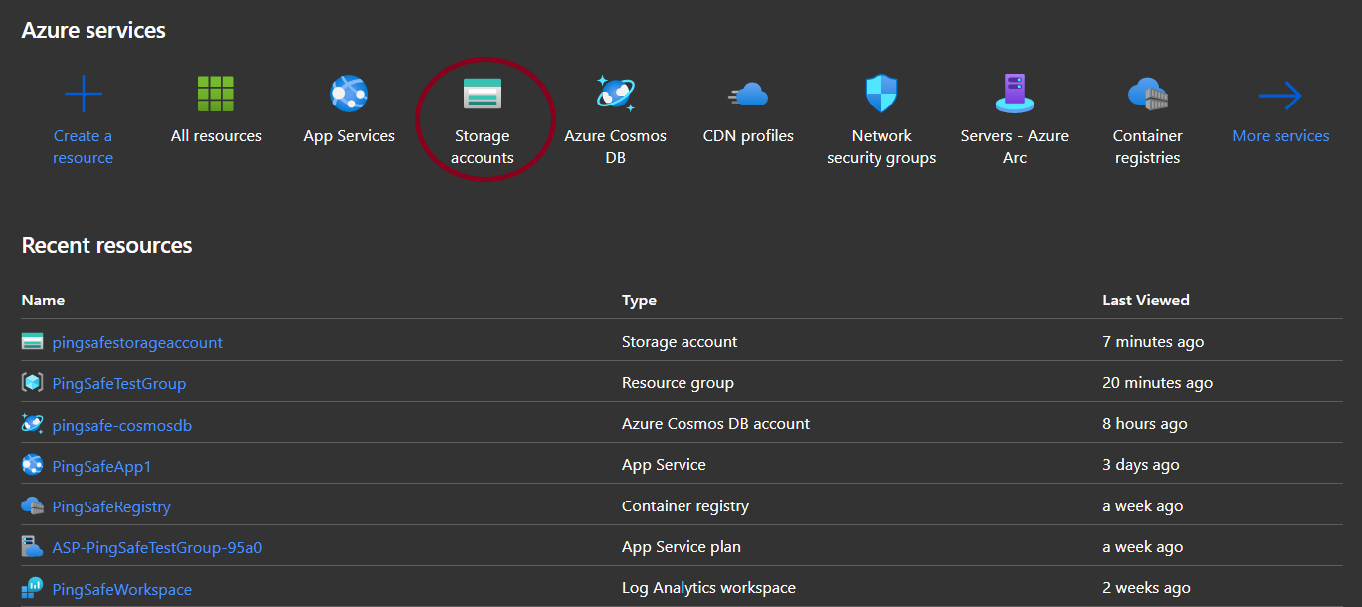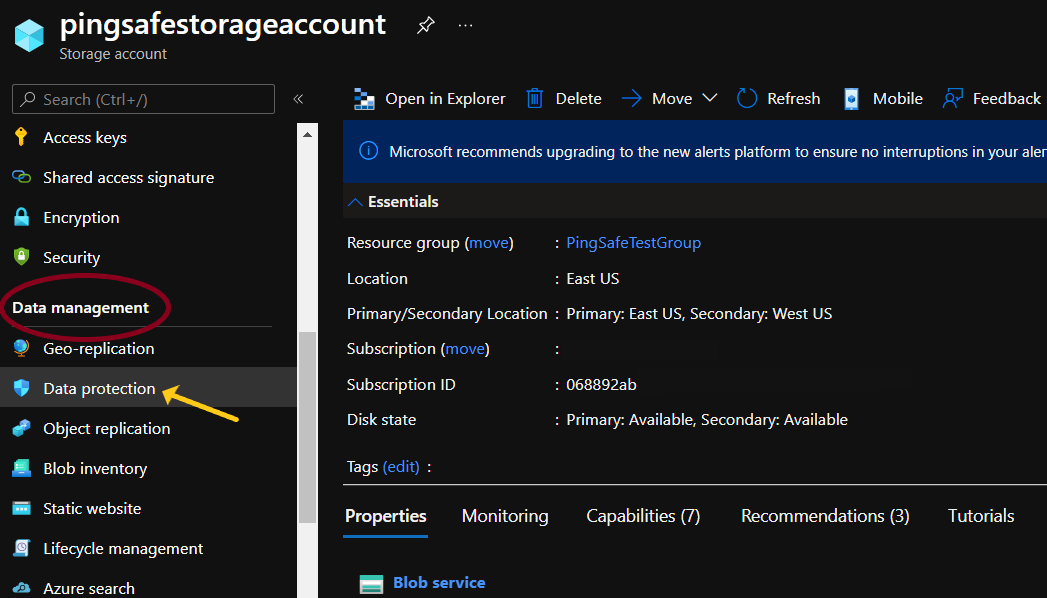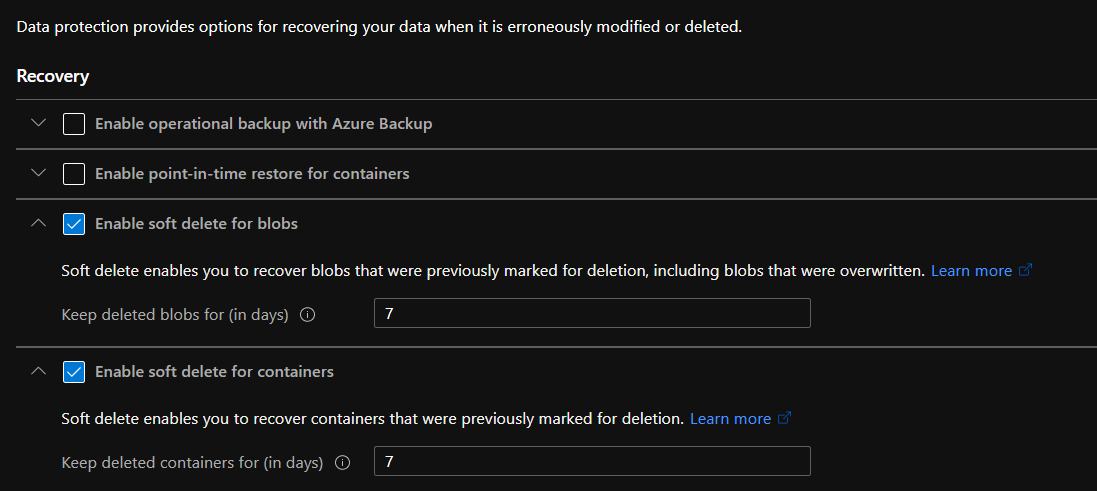Blobs Soft Deletion Disabled
Risk Level: Low
Description
The plugin triggers when the soft deletion is not enabled for the blob container. The soft delete feature will allow the users to retrieve the deleted blobs within a set time period before it is permanently deleted. This ensures any critical information can be restored if deleted accidentally.
About the Service
Storage Accounts: An azure storage account is used to store the customer’s data objects such as files, queues, shares, etc. The storage accounts ensure high availability for the clients and allot a unique namespace for the storage data and are accessible from anywhere around the world using HTTP or HTTPS protocols.
Impact
If the soft delete for blob is disabled, then the original or unintentionally deleted blobs cannot be retrieved back. This may cause a serious impact if any business-critical information is deleted accidentally.
Steps to Reproduce
- Login to azure portal.
- Click on Storage accounts for Services.

- Select any one of the provided accounts to check for the policy.

- From the navigation bar, select Data protection from Data management.

- If the Enable soft delete for blob is not selected go to the Steps for remediation section.

Steps for Remediation
- Log in to the Azure portal.
- Click on Storage accounts for Services.

- Select any one of the provided accounts to check for the policy.

- From the navigation bar, select Data protection from Data management.

- To Enable soft delete for blob select the checkbox and mention the number of days to keep the deleted blobs, by default value is 7 days.

Please feel free to reach out to support@pingsafe.ai with any questions that you may have.
Thanks
PingSafe Support